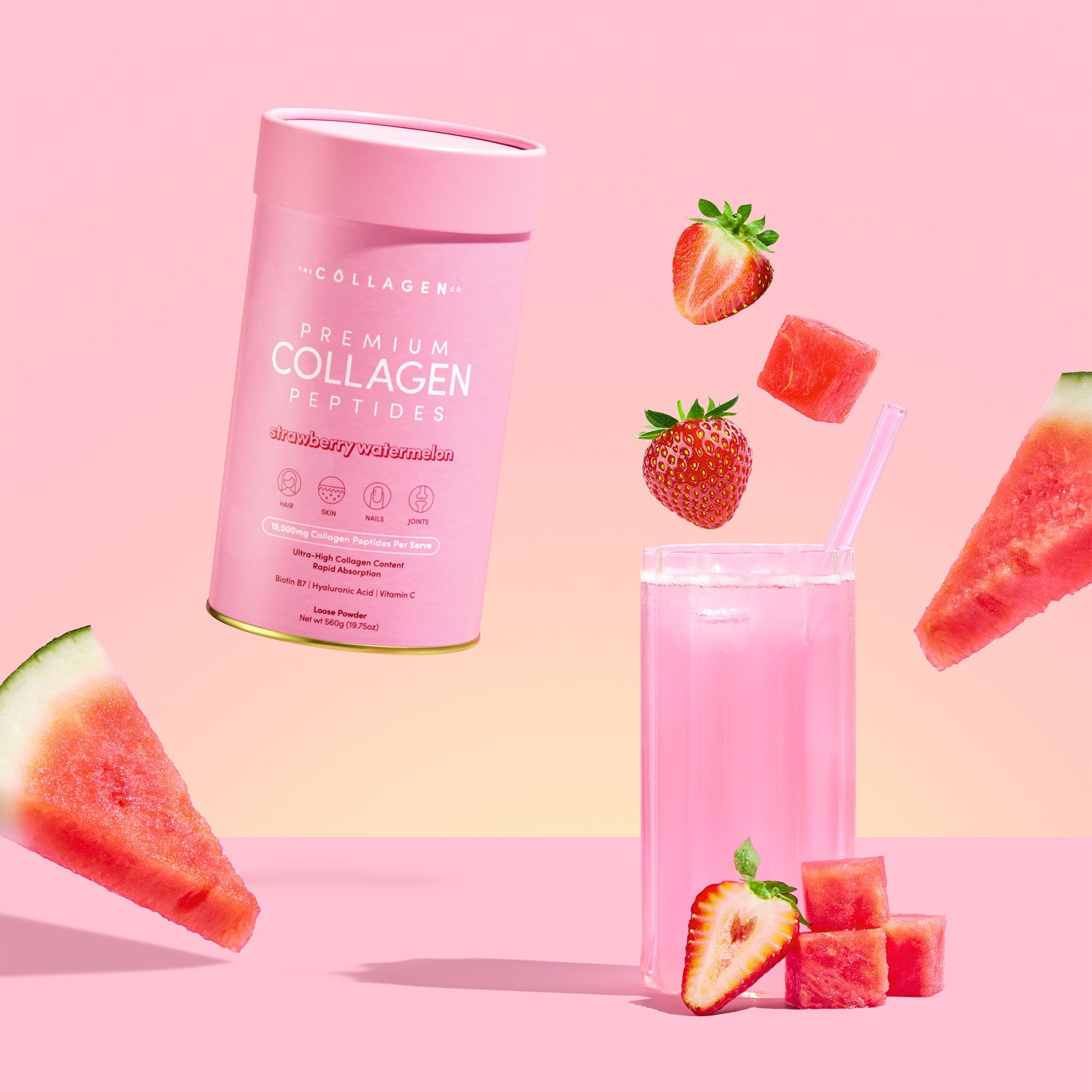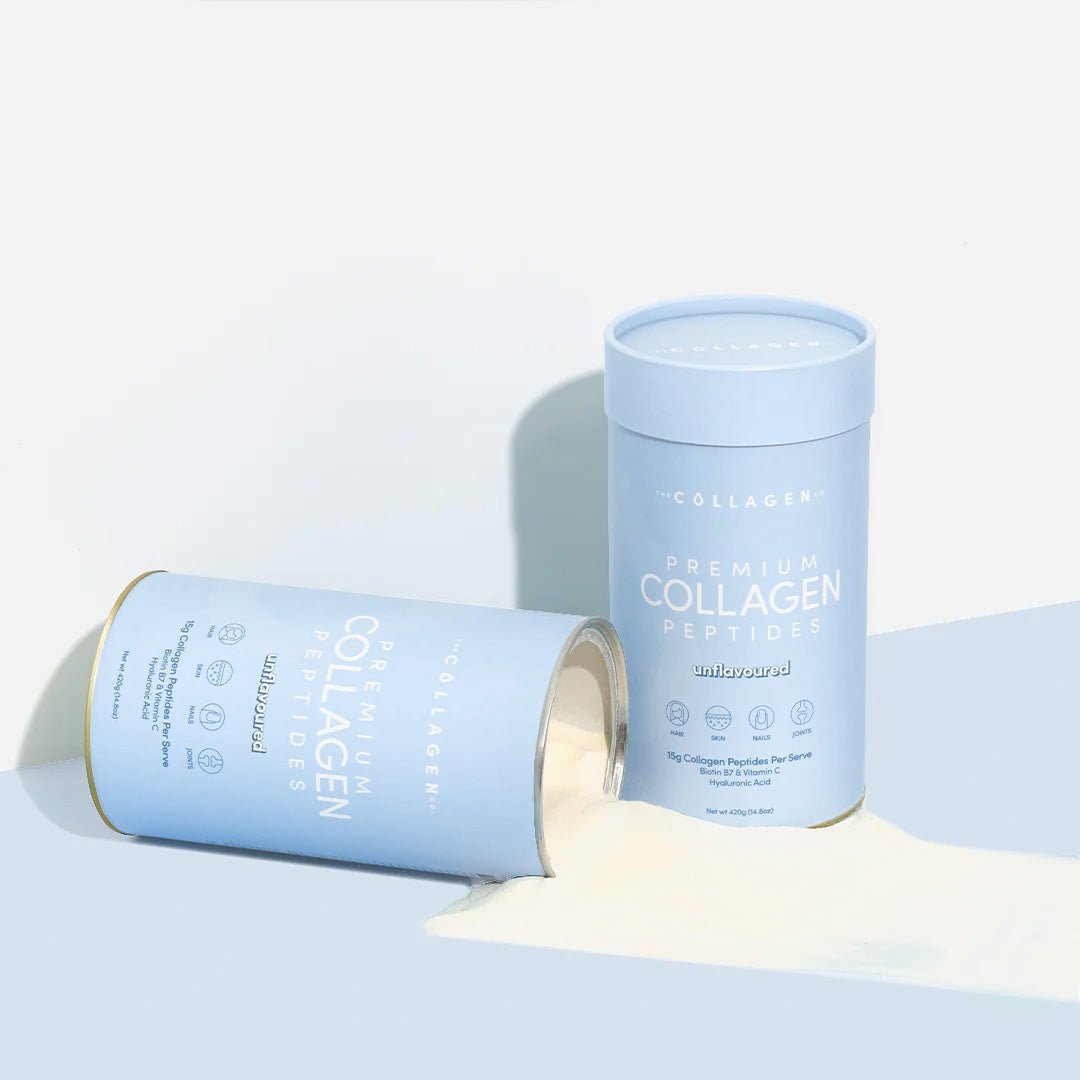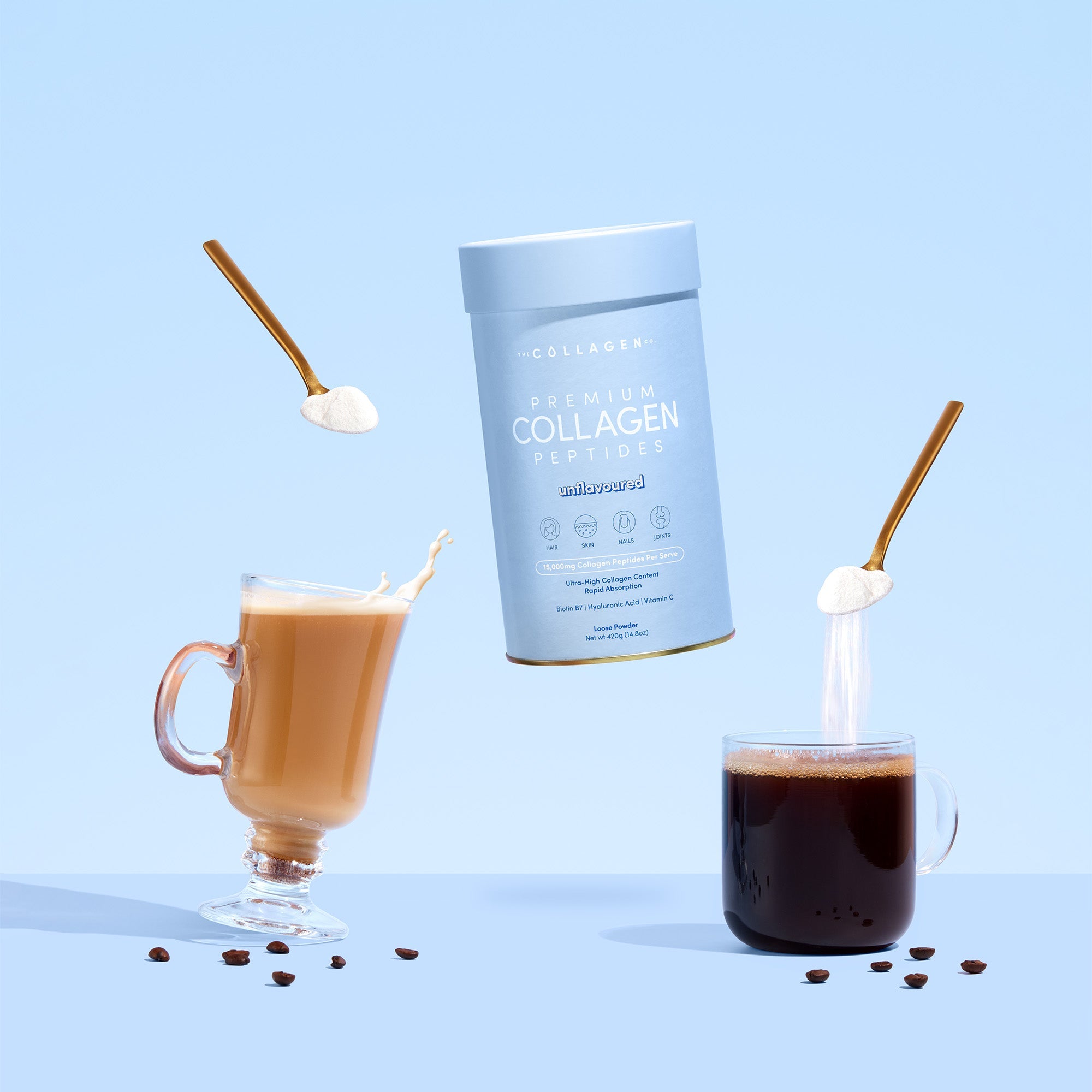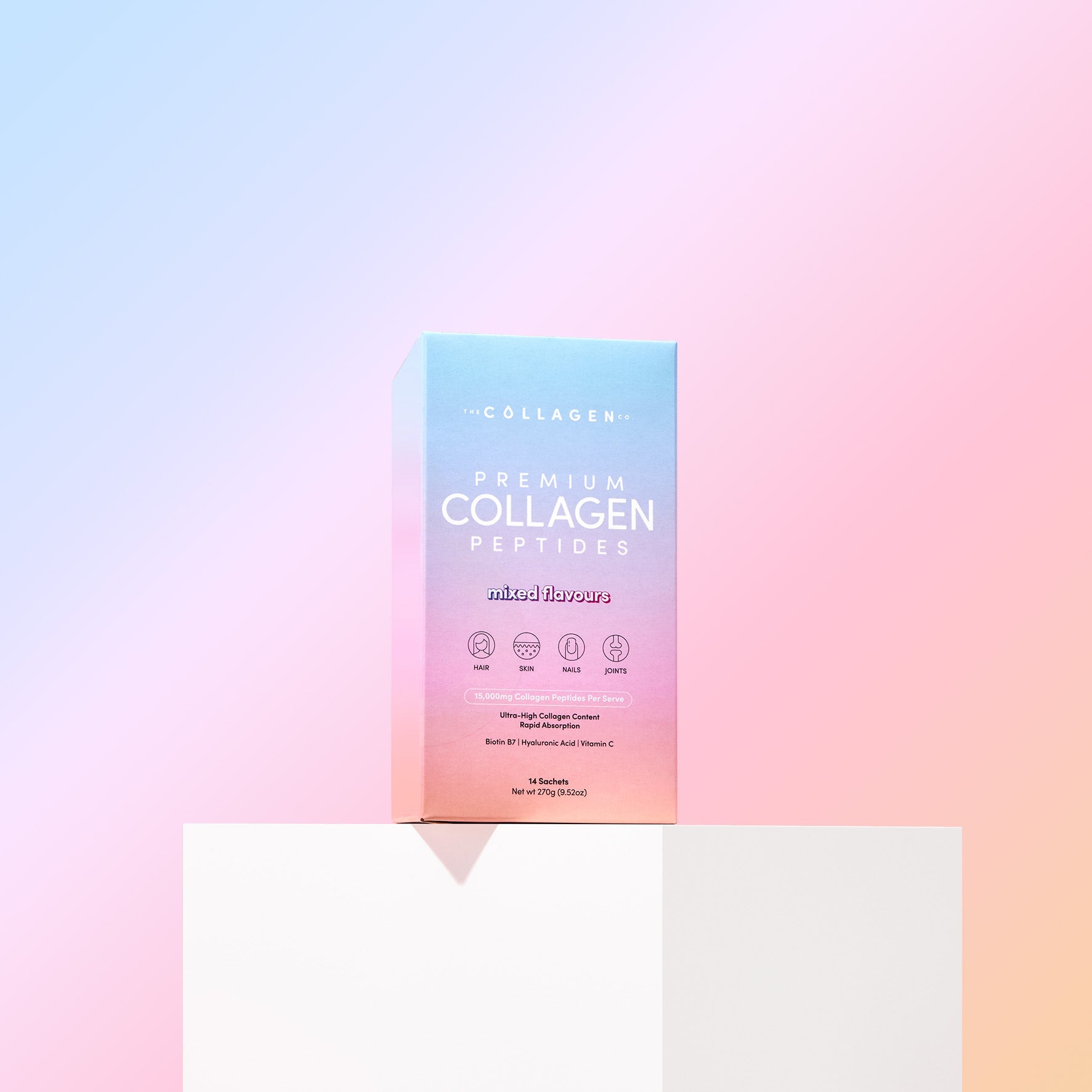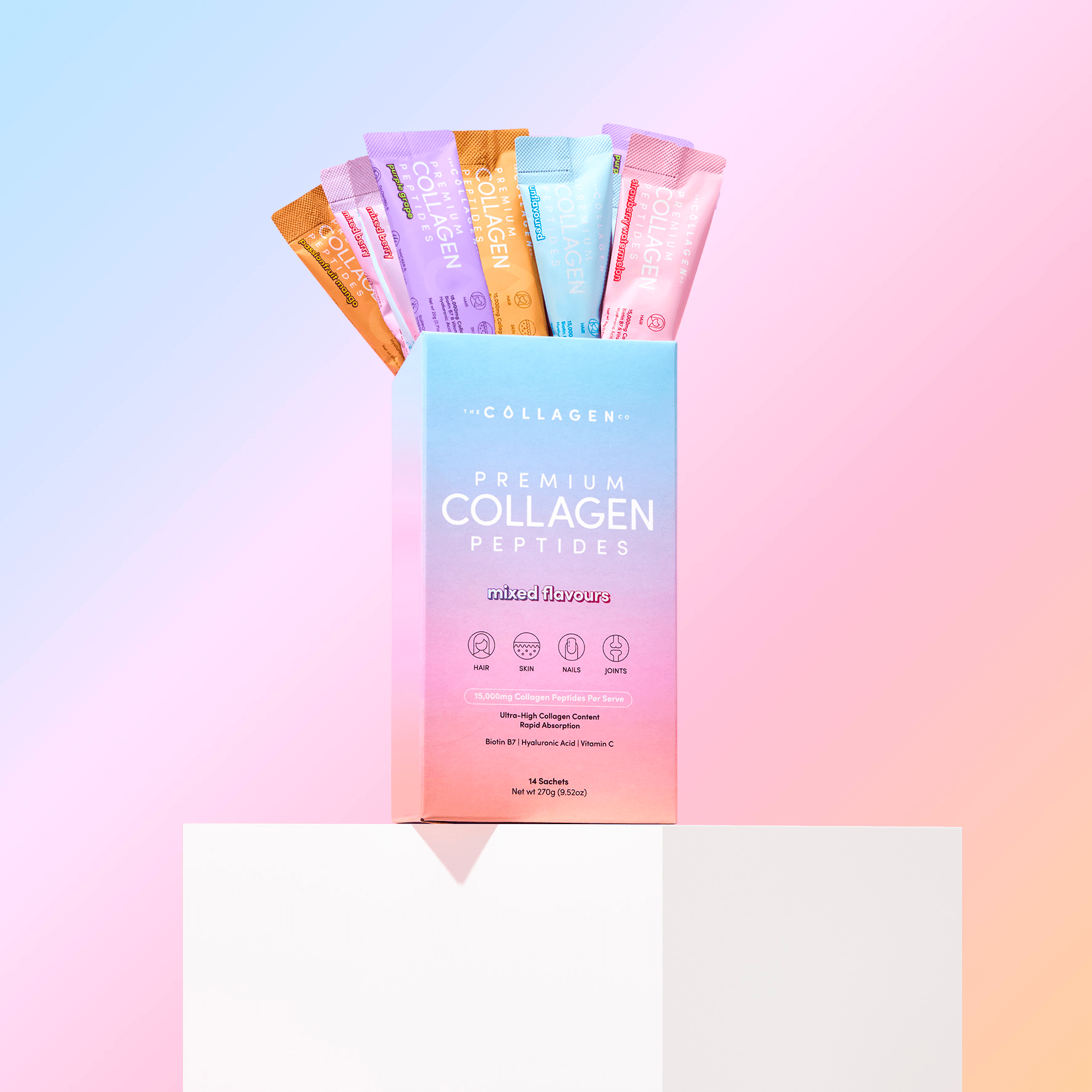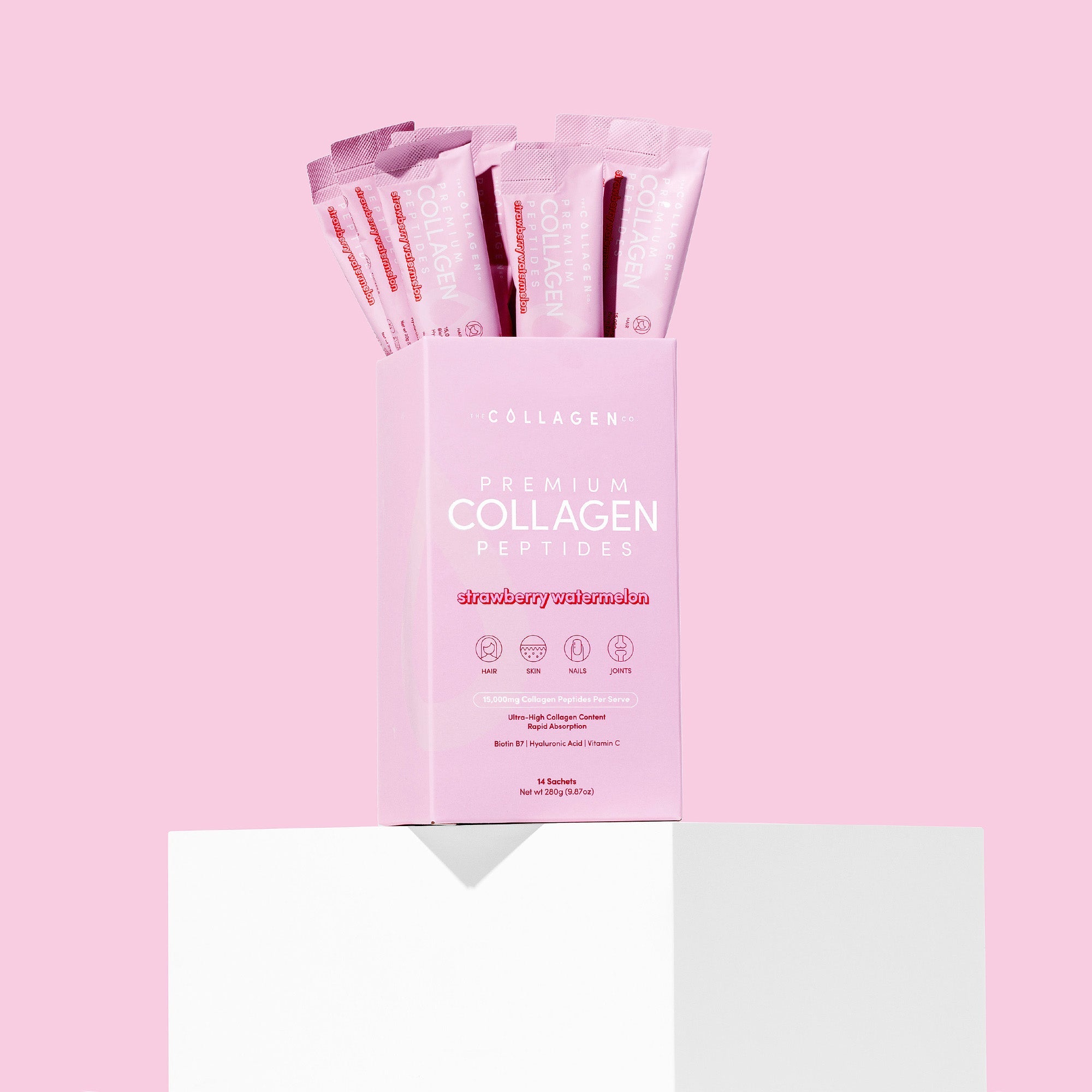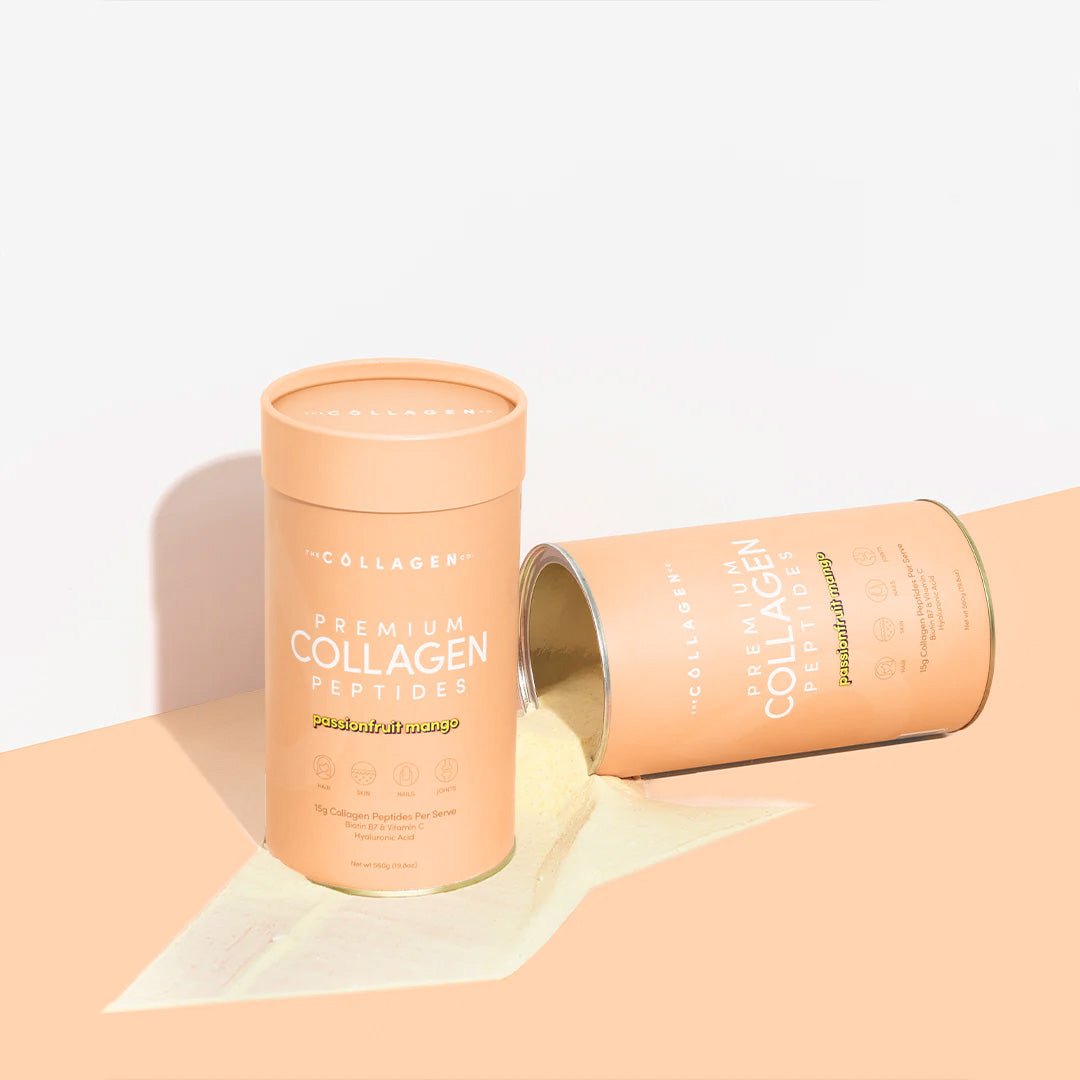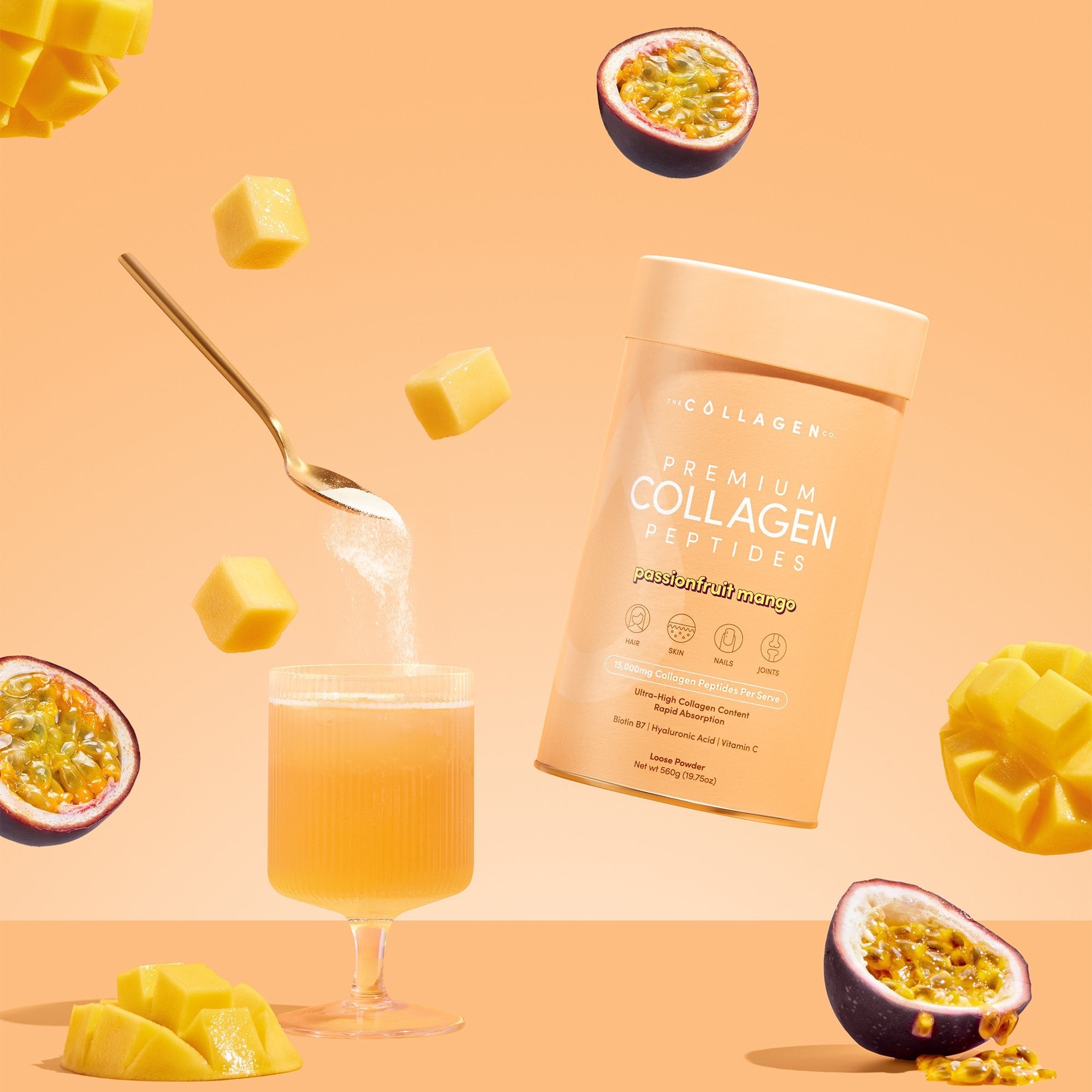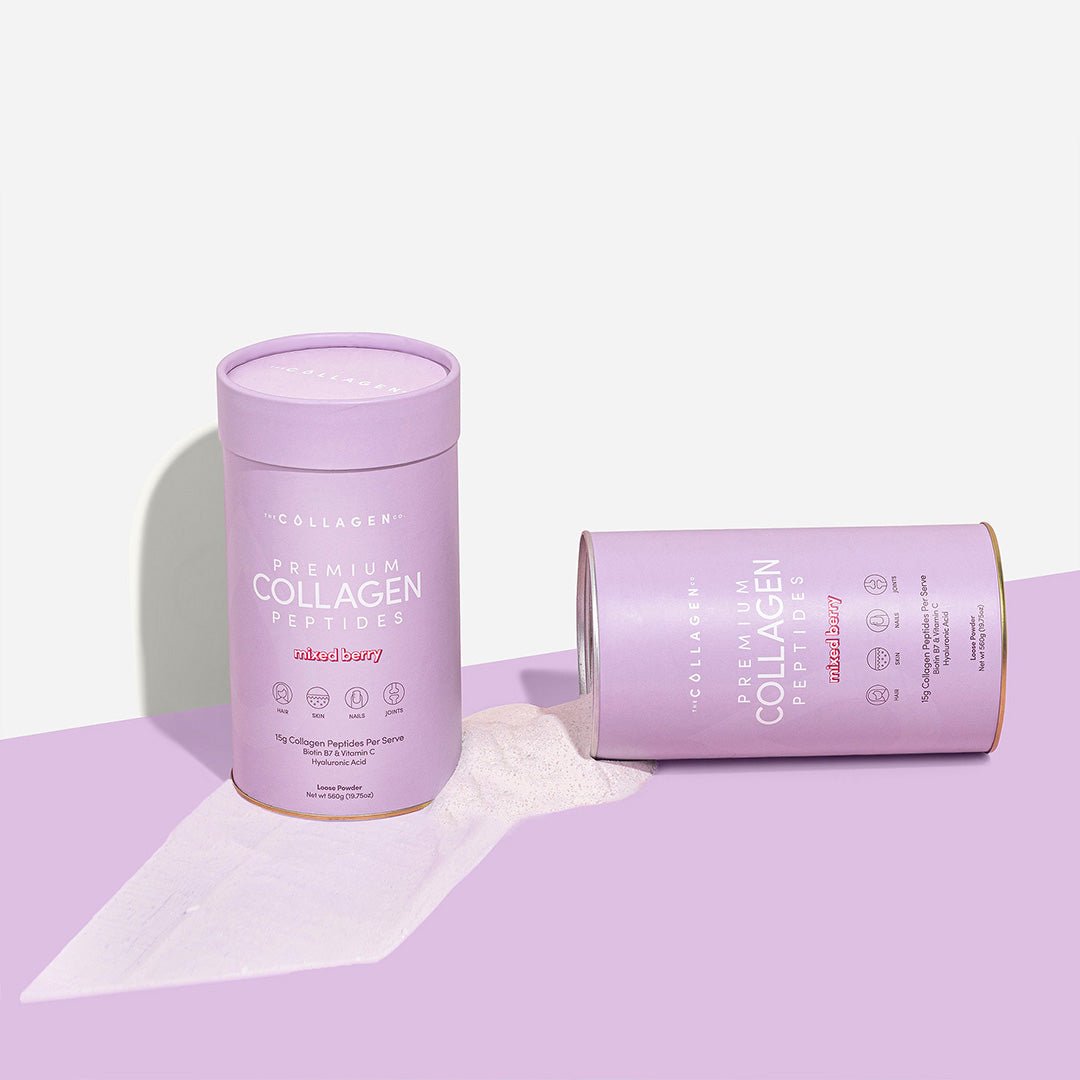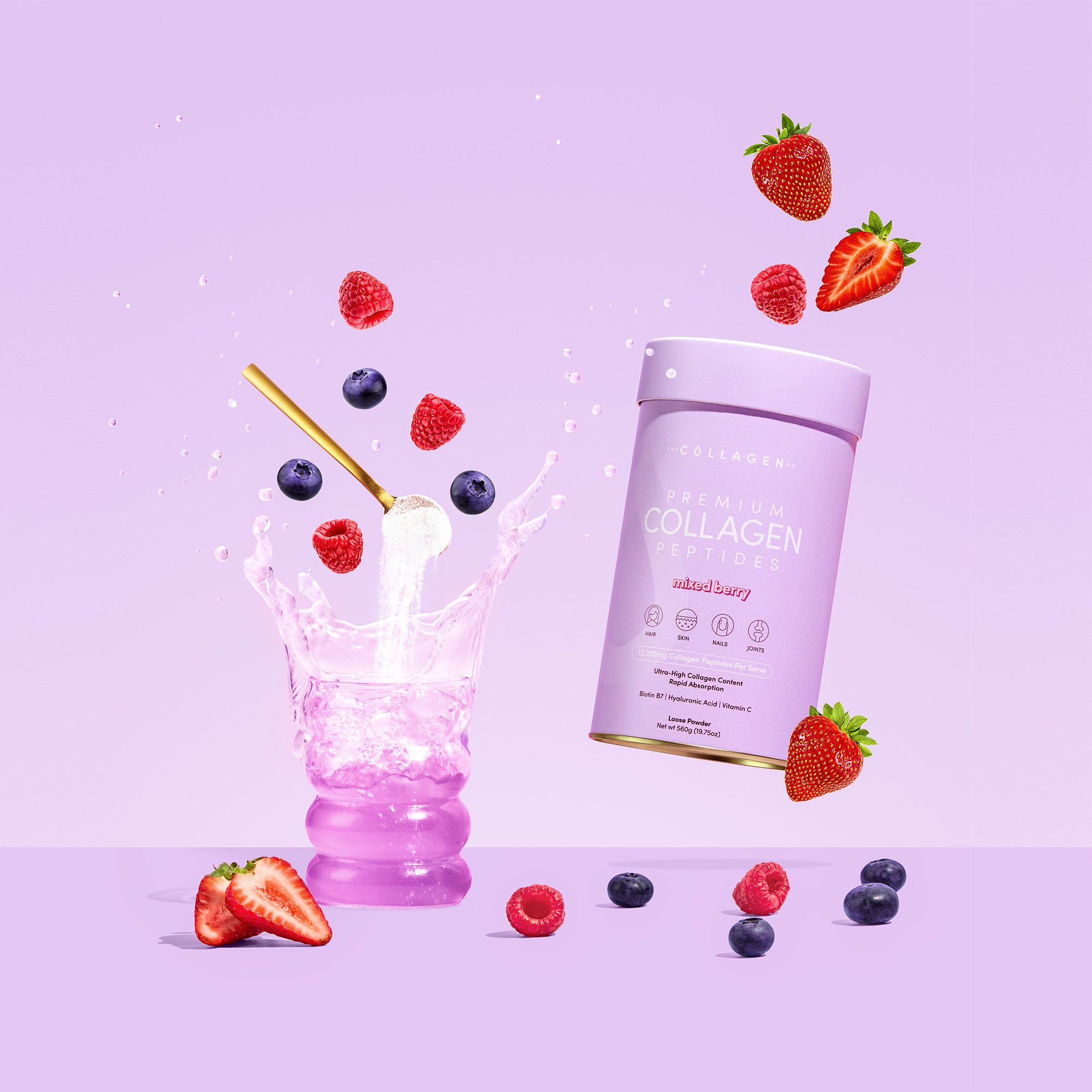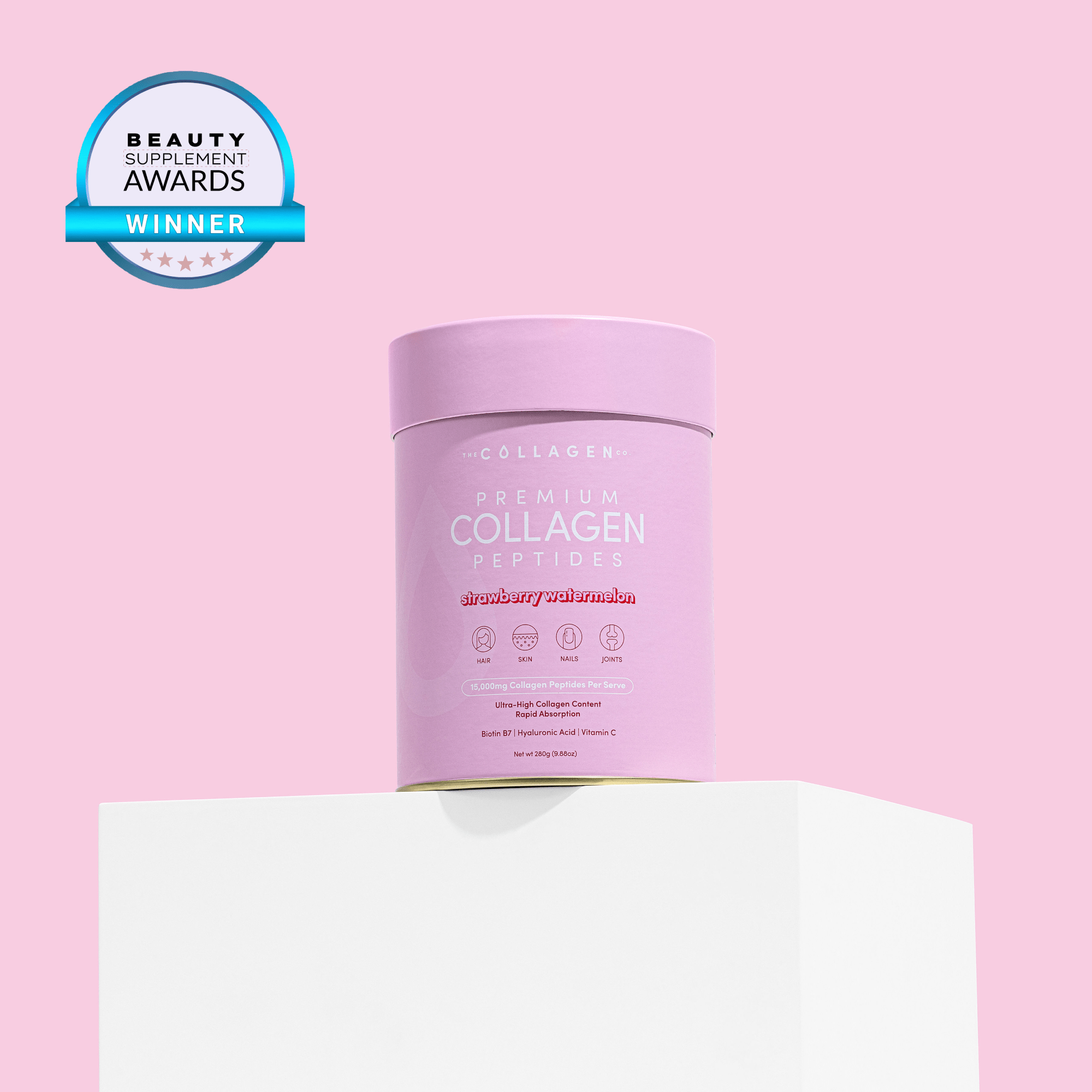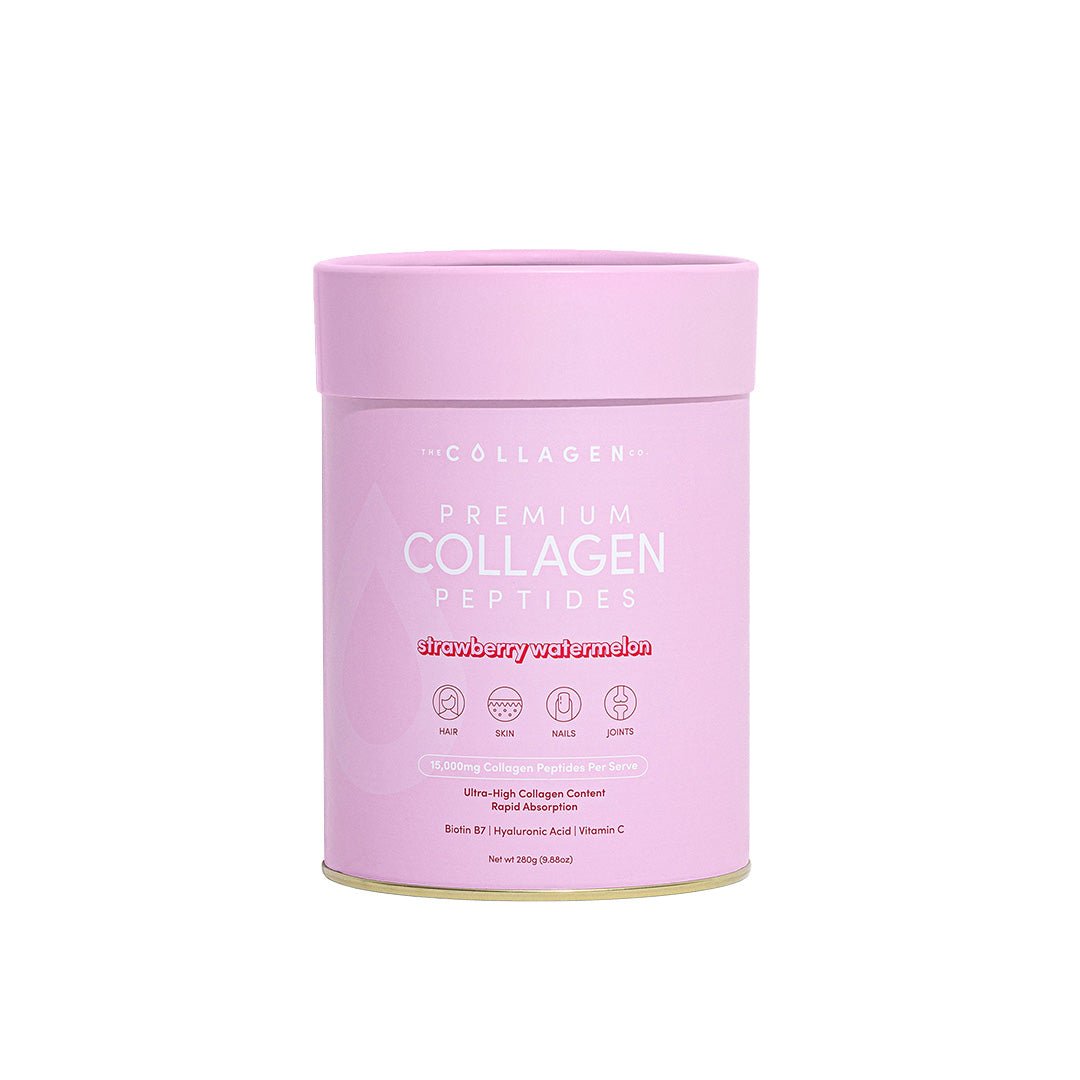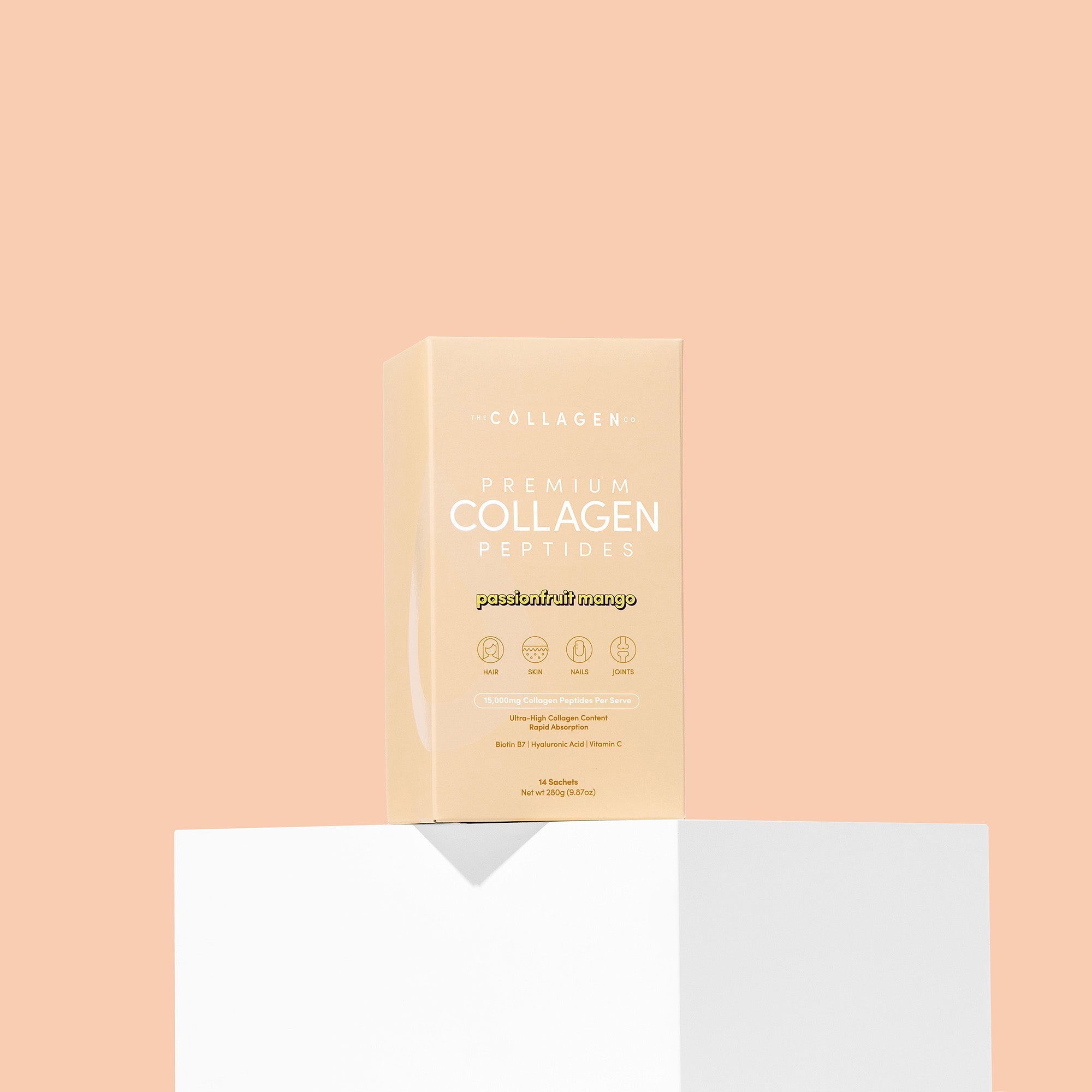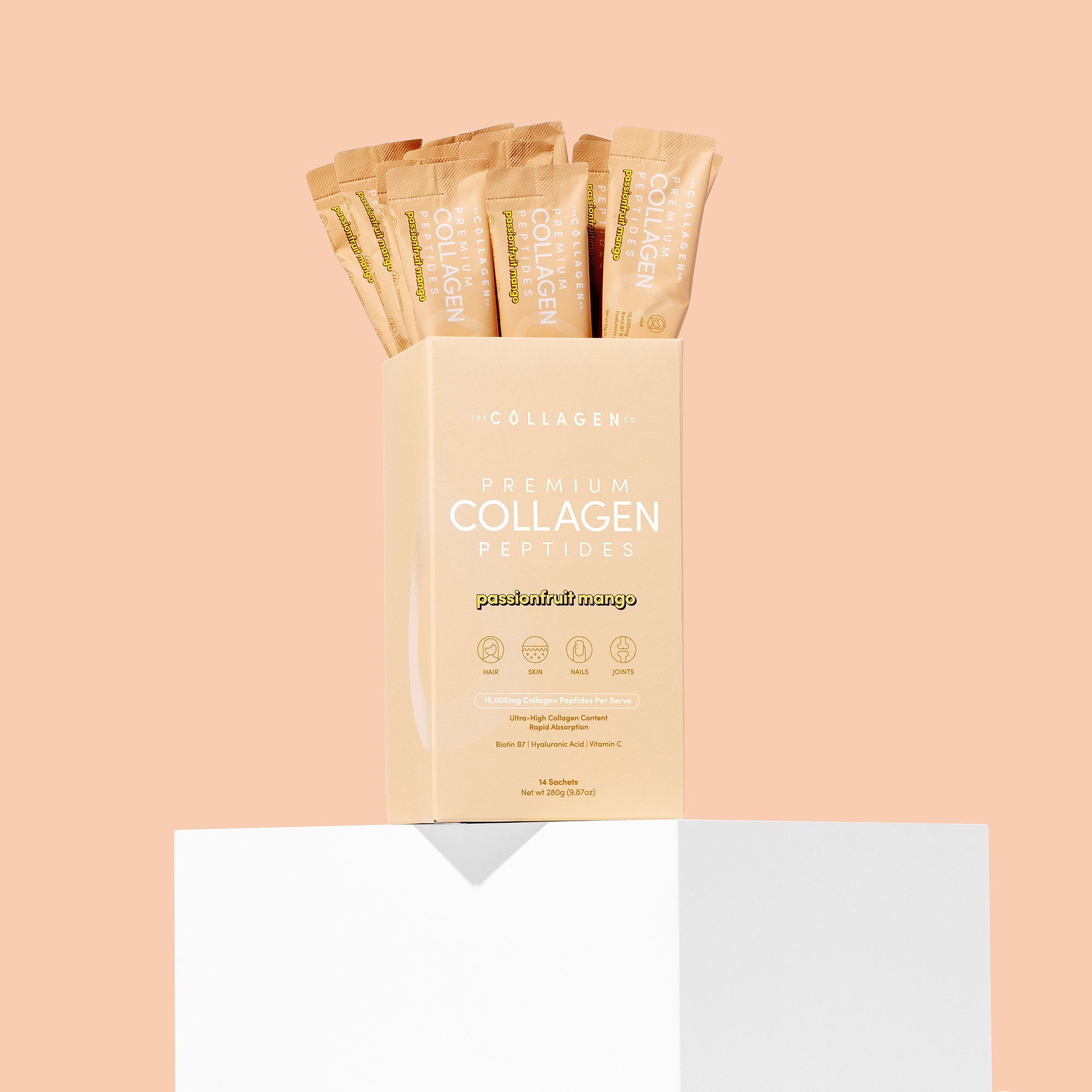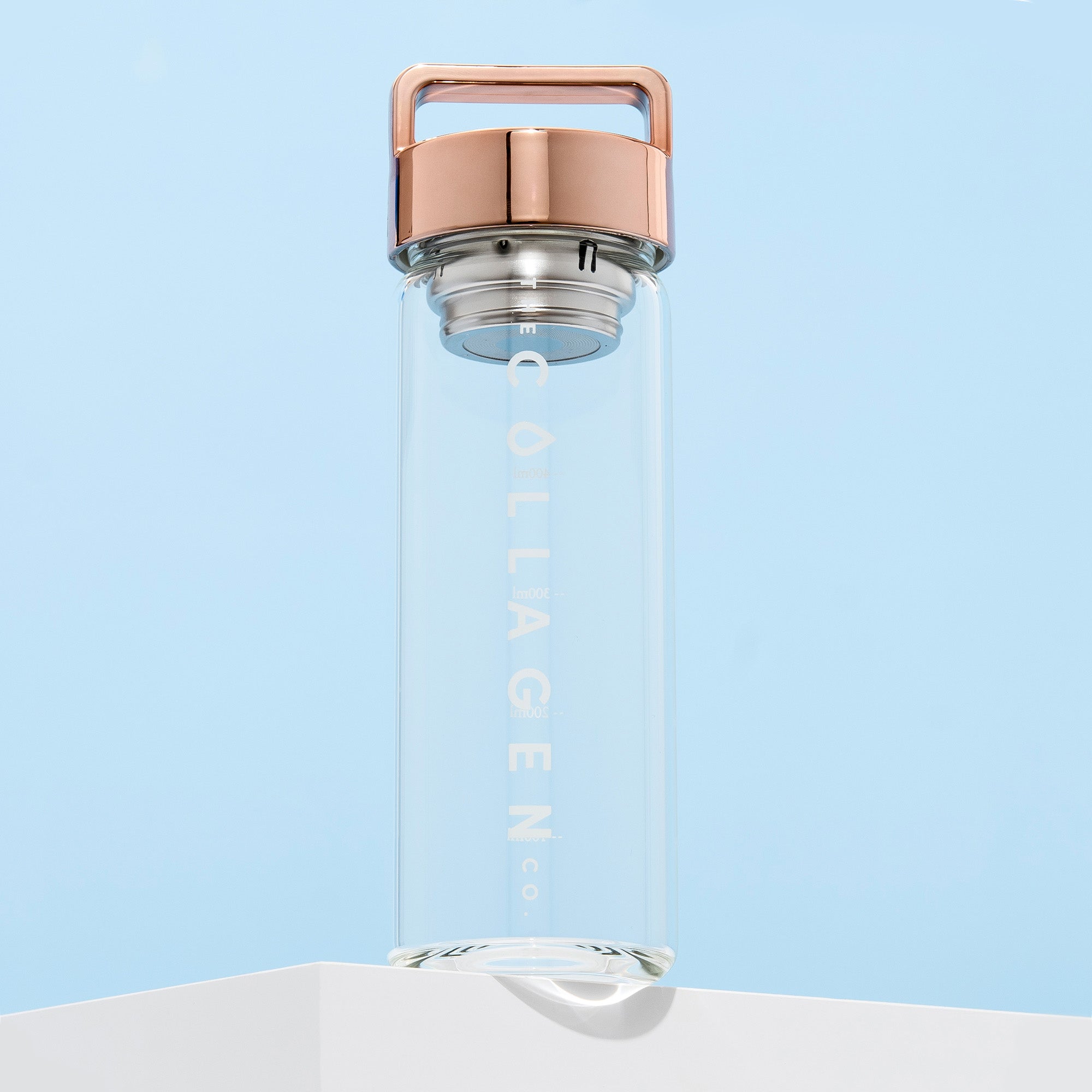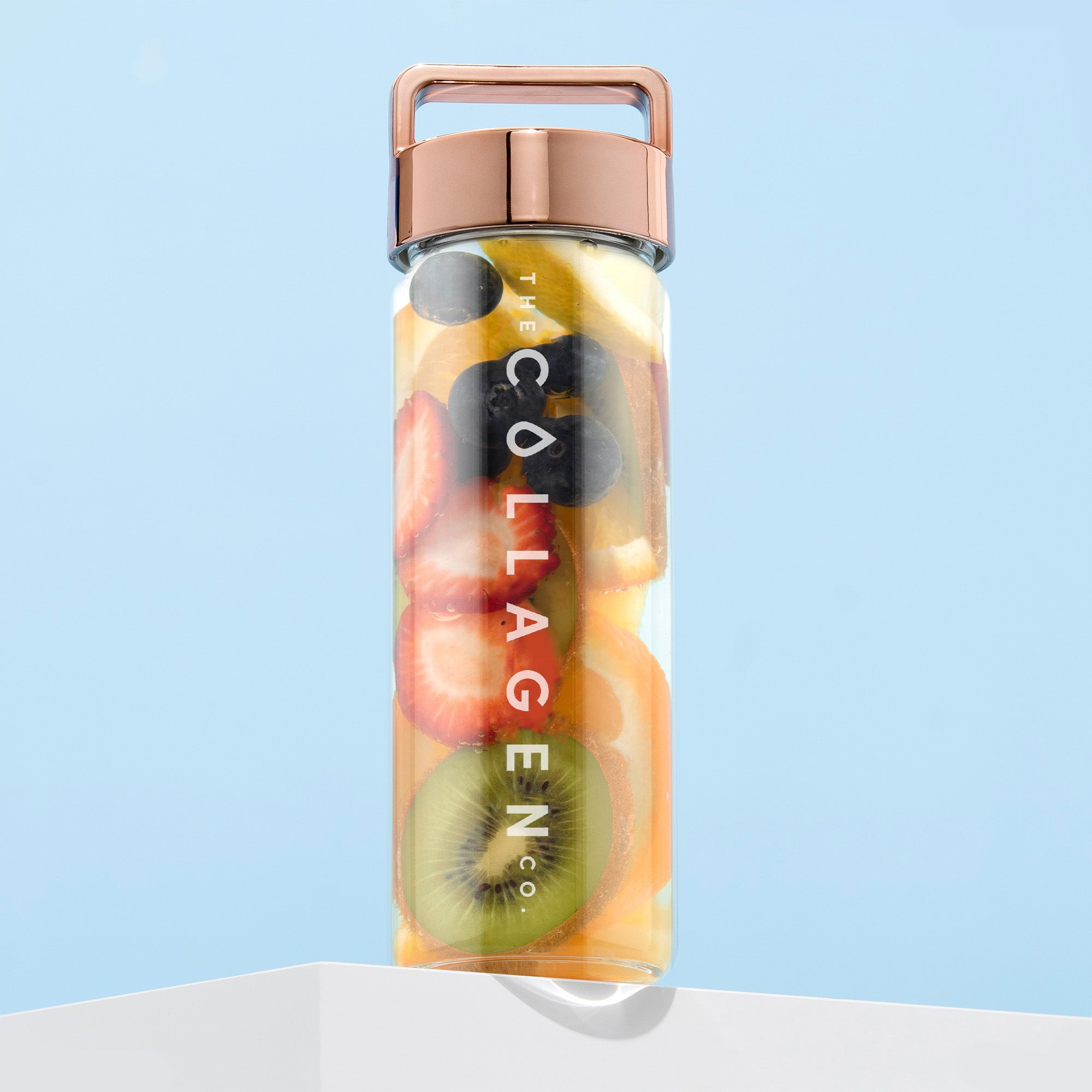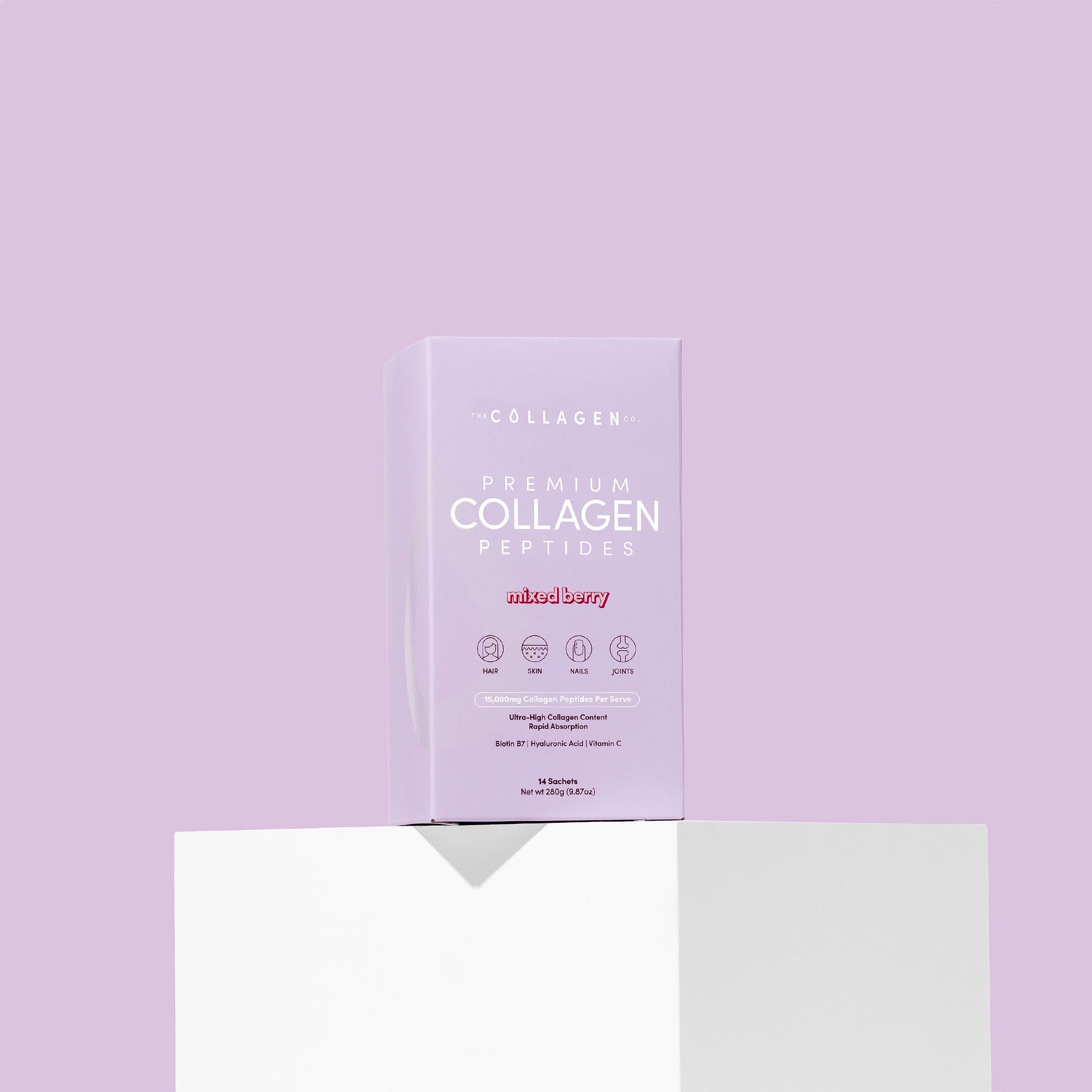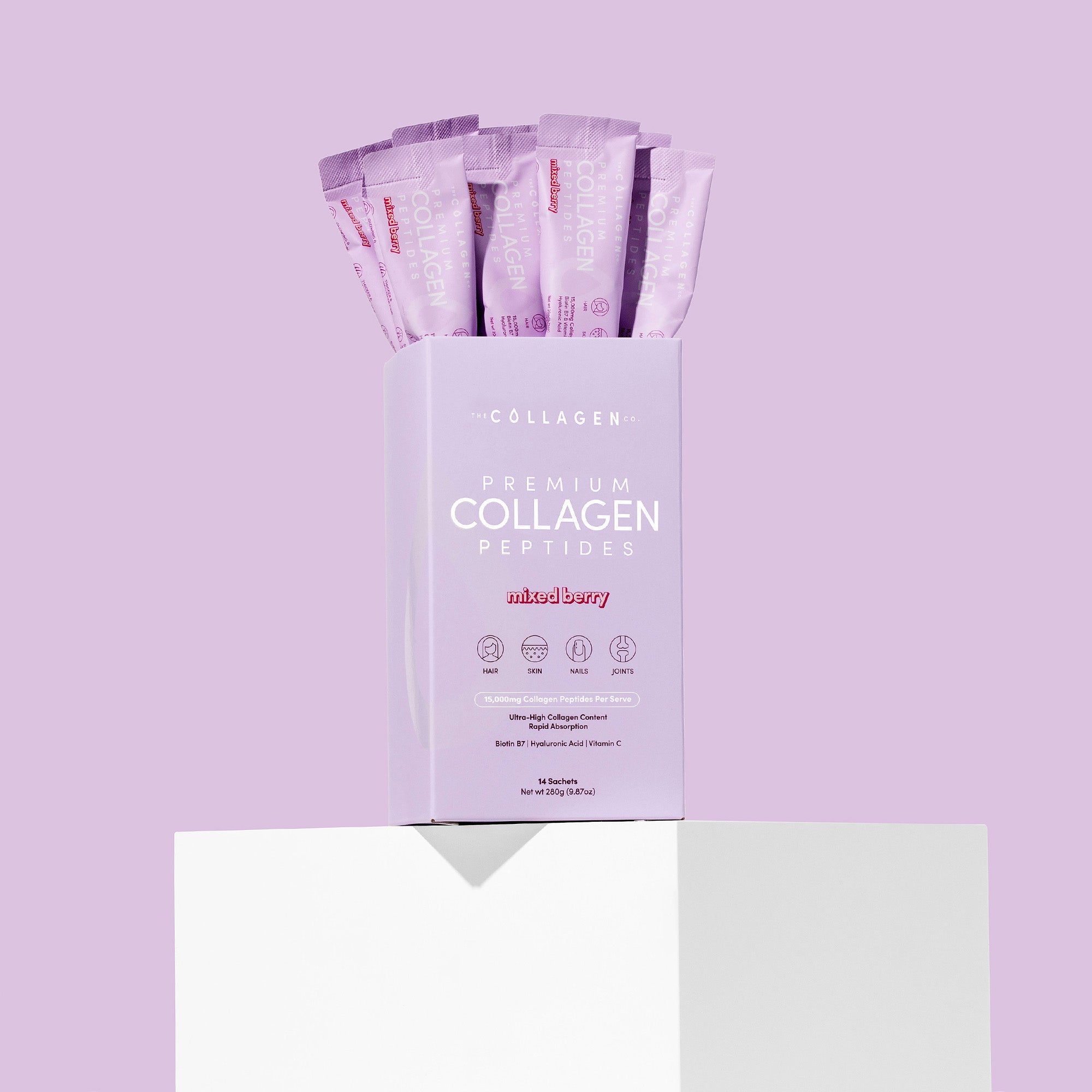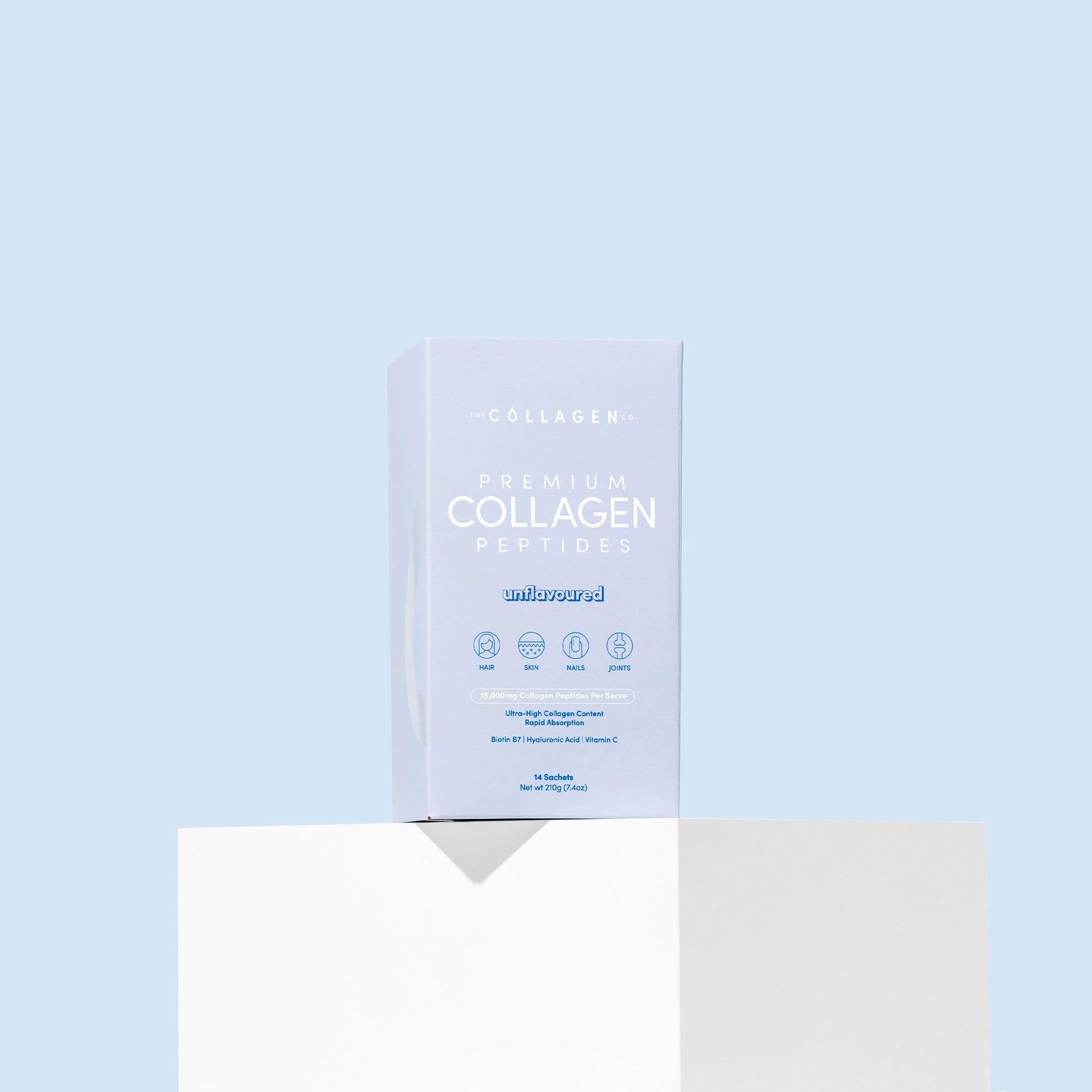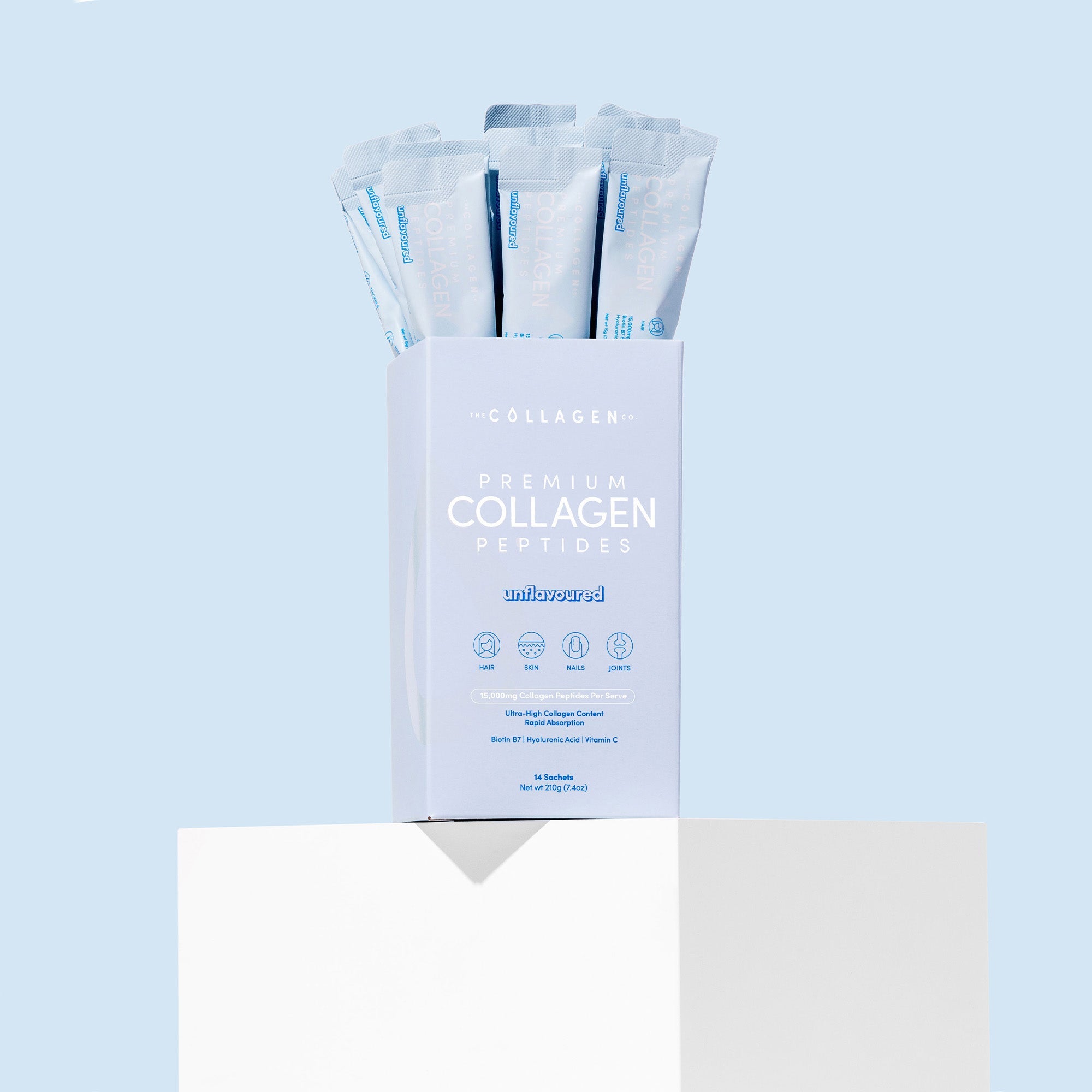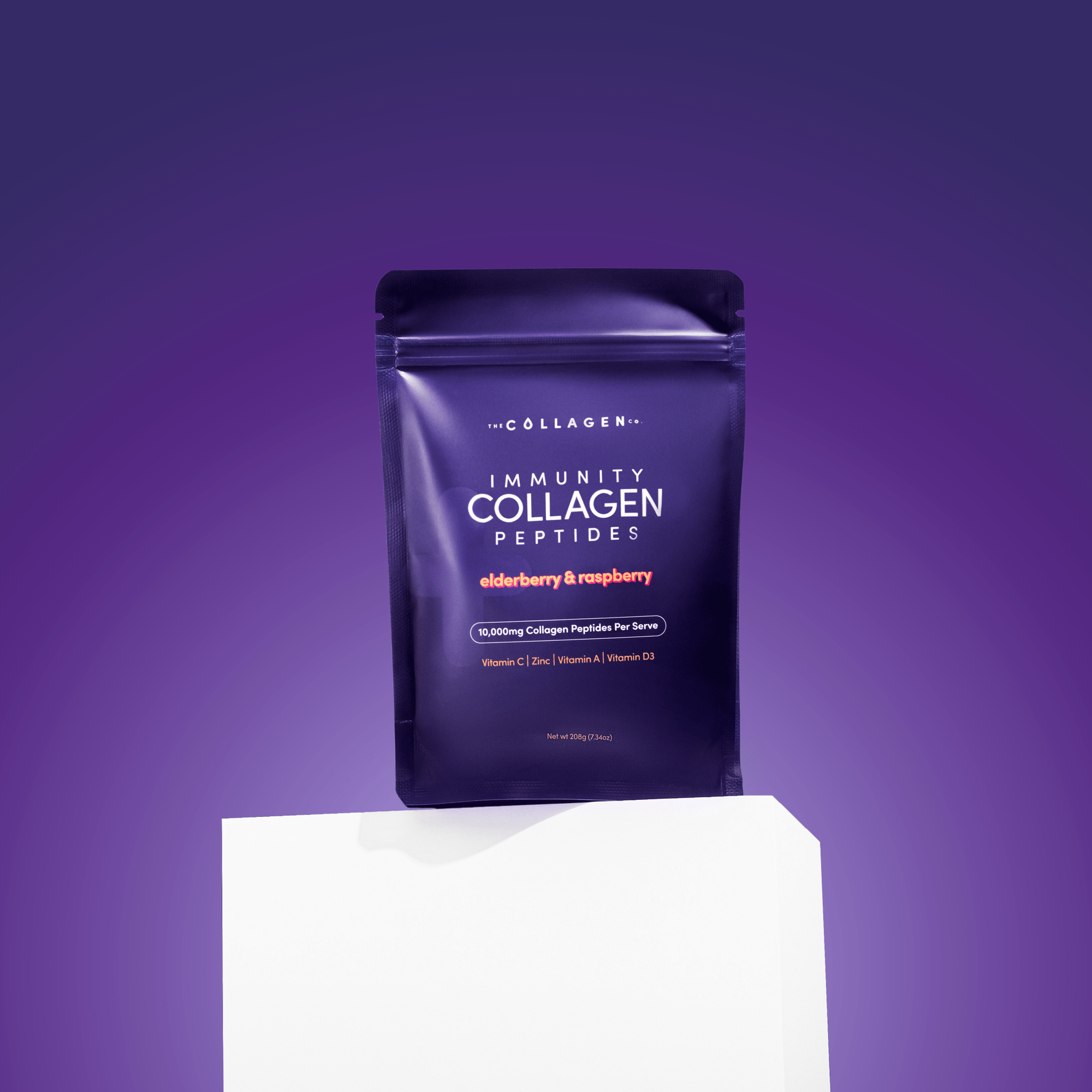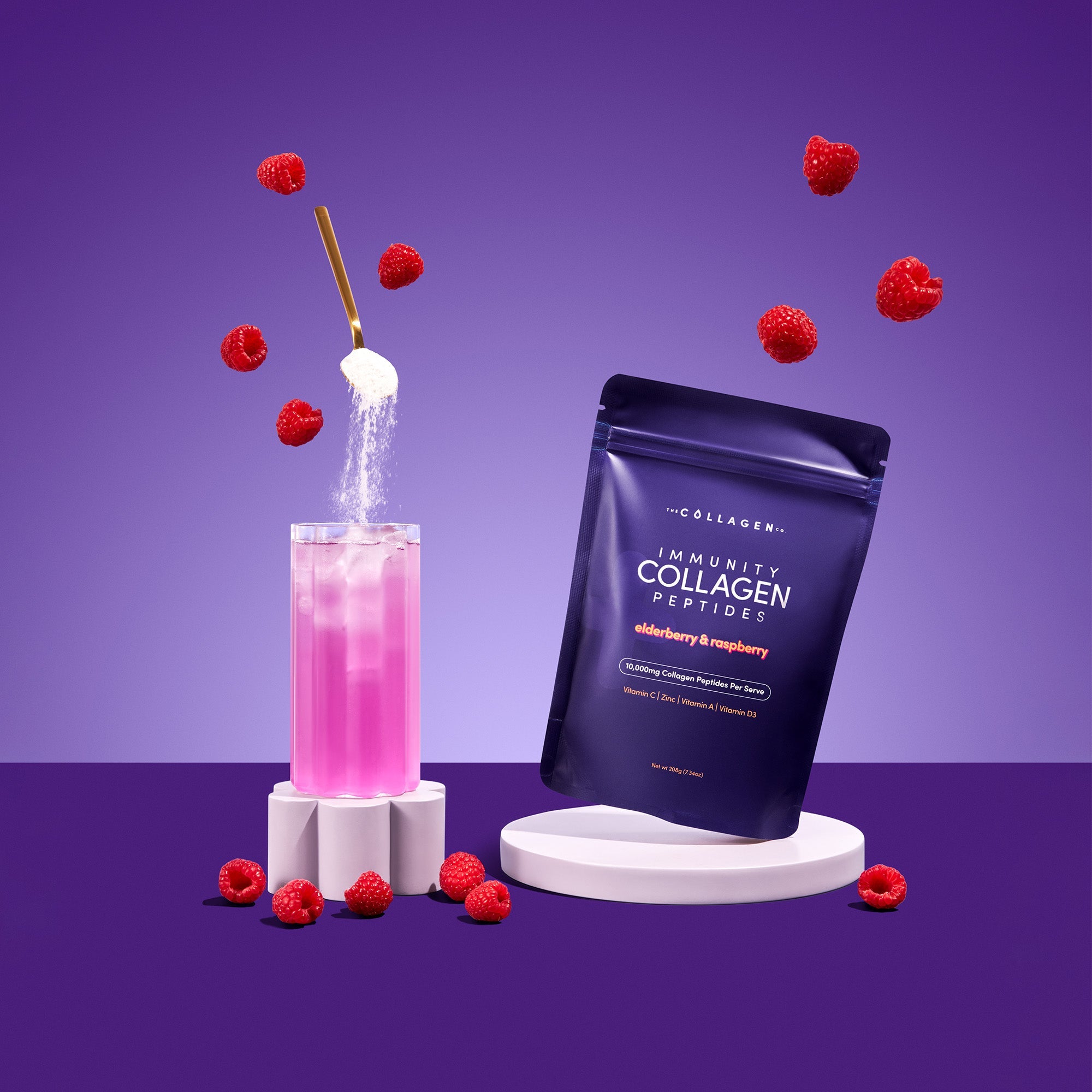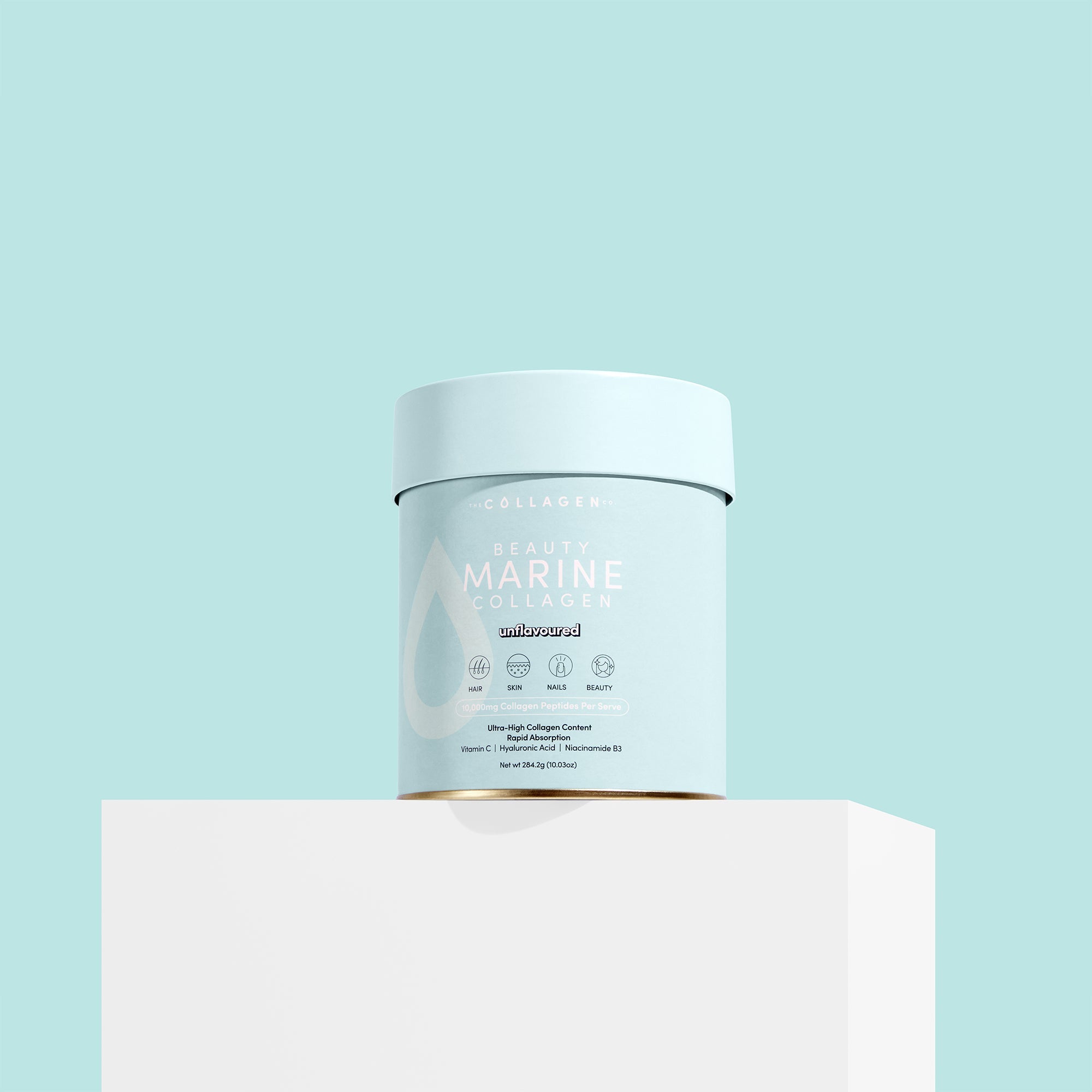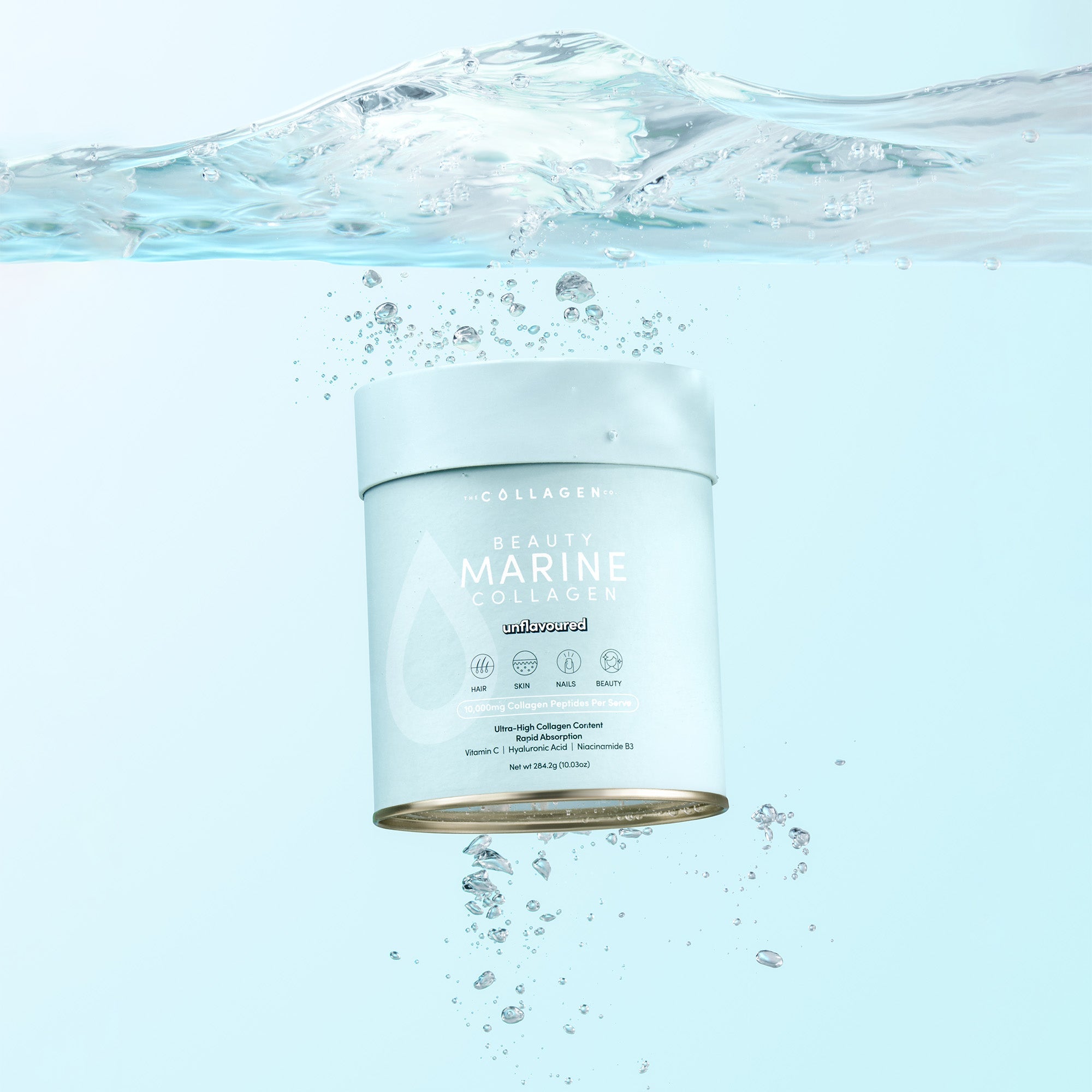Is Collagen Good For Gut Health?
Posted July 2024

Your gut health is one of the most important aspects of good health and well-being.
In addition to helping your body digest foods for energy and essential micronutrients, your gut influences everything from your mood to the risk of developing chronic illnesses (e.g., obesity and cardiovascular disease) to immune health.
So, once you’ve checked off the “basic” gut health improvement strategies (eat a nutritious diet, limit alcohol, stay physically active, etc.), it’s only natural that you’d ask, “What else can I do?”
One word: collagen. But before that, let’s get on the same page about what gut health means.
What exactly is gut health?
Your gut refers to your gastrointestinal tract, which runs from your mouth to the stomach and intestines. While there is no clear, universal definition of gut health, most researchers and medical professionals refer to gut health as:
- Having a healthy gut microbiome, and
- Minimal symptoms of digestive disorders, including bloating, constipation, and diarrhea
What is “gut microbiome”?
It’s a community of (trillions of) microscopic organisms, including bacteria and viruses, that live inside your intestinal tracts. Most are helpful (“good”), while others are “harmful”. That said, even supposedly beneficial microbiota can cause problems if there’s too much of them.
I.e., it’s all about balance.
How is collagen good for gut health?
There are several ways collagen is good for gut health.
#1: Acts as a prebiotic
Ingested hydrolyzed collagen peptides may act as a prebiotic.
For the uninitiated, prebiotics function as a food source for your gut’s microorganisms. As gut microbes ferment (breakdown) fiber, they produce short-chain fatty acids (SCFAs), including butyrate, propionate, and acetate.
What’s the significance of this, you ask?
SCFAs are the primary fuel source for your intestinal epithelial cells. These are the cells that line the inside of the gut; they’re responsible for:
- Digesting food and absorbing nutrients
- Guarding against infections
- Secreting mucus (helps food, liquid, and stools pass easily through the gut)
Beyond “powering” your epithelial cells, SCFAs also keep them tightly linked together, reducing the risk of unwanted compounds, such as toxins, viruses, and undigested food particles, from leaking into the bloodstream.
#2: Supports a healthy gut barrier
Now, the idea of unwanted compounds leaking into the bloodstream ties into a condition called increased intestinal permeability.
This is where the gaps between the cells of your gut lining get bigger.
Here’s some crucial background information: your gut lining usually behaves like an on-the-ball bouncer at the club. It’s semi-permeable. It lets water and digested nutrients into the bloodstream while blocking off potentially dangerous bacteria and chemicals.
But with increased intestinal permeability, your gut lining becomes a distracted bouncer. It becomes overly permeable. It’ll let in things it’s not supposed to. This could cause the following symptoms:
- Chronic diarrhea, constipation, or bloating
- Nutritional deficiencies
- Fatigue
- Headaches
- Difficulty concentrating
So, how do hydrolysed collagen peptides help? As mentioned earlier, they’re involved in the production of SCFAs, which “tightens” the junctions between epithelial cells.
That’s not the only thing they do, though. They also:
- Provide the building blocks (amino acids) your body needs to “repair” your gut lining for enhanced integrity
- Lower oxidative stress in the gut (note: oxidative stress is a known contributor to gut dysbiosis, which is an imbalance of “good” and “bad” gut microbes)
#3: Supports elasticity in the gastrointestinal tract
How long it takes for food to move through your digestive system (i.e., bowel transit time) is a crucial factor for gut health.
More specifically, the longer your food takes to pass through the stomach and intestines, the more harmful bacterial degradation products are produced. This may cause uncomfortable digestive symptoms, such as constipation, flatulence, diarrhea, and nausea.
Hydrolysed collagen peptides could support a healthy bowel transit time (research shows this is anywhere between 10 and 73 hours) by:
- Increasing the number and activity of collagen-producing fibroblasts
- “Replenishing” the collagen stores
… in the gut’s connective tissues.
This enables a flexible, “elastic” gastrointestinal tract that’s conducive for peristalsis — the involuntary contraction and relaxation of the muscles throughout the GI tract allowing for the transport of food (and its digested contents) from the mouth to the intestines.
How much collagen to take for gut health
OK, so, at this point, it’s crucial to distinguish between collagen and hydrolyzed collagen peptides (notice how we consistently italicized “peptides” in the ‘How is collagen good for gut health?” section?):
- Collagen: A large protein molecule that, if consumed (e.g., through food sources), wouldn’t typically function differently from other protein sources, such as meat or fish.
- Hydrolysed collagen peptides: These are collagen molecules that are broken down into shorter chains of amino acids. When broken down enough, collagen peptides can pass through the gut barrier intact as bioactive compounds.
FYI, bioactivity is what you need for collagen to benefit gut health (by acting as a prebiotic, “tightening” the gut lining, and boosting elasticity in the GI tract).
This means the question should be, “How much collagen peptides should be taken for gut health?”
Studies have used anywhere between 2.5 to 20 grams of collagen peptides daily. That said, we’d say consistency is the name of the game here for gut health, which is why we’d recommend picking a collagen supplement you’d enjoy taking every day.
Oh, and because you’ve definitely been wondering: “small enough” means collagen peptides with a molecular weight of anywhere between 2-3 kDa.
Just so you know, we’ve broken down all our collagen products at The Collagen Co to just the right size for optimal absorption and bioactivity. They also contain a minimum of 5 g of hydrolyzed collagen peptides per serving, making it easy for you to reap their gut health benefits.
Best of all? They come in so many juicy flavors — from Strawberry Watermelon to Passionfruit Mango (Premium Collagen Peptides range) and Strawberry Milkshake (Glow Shakes range) to Elderberry & Raspberry (Immunity Collagen Peptides range).

